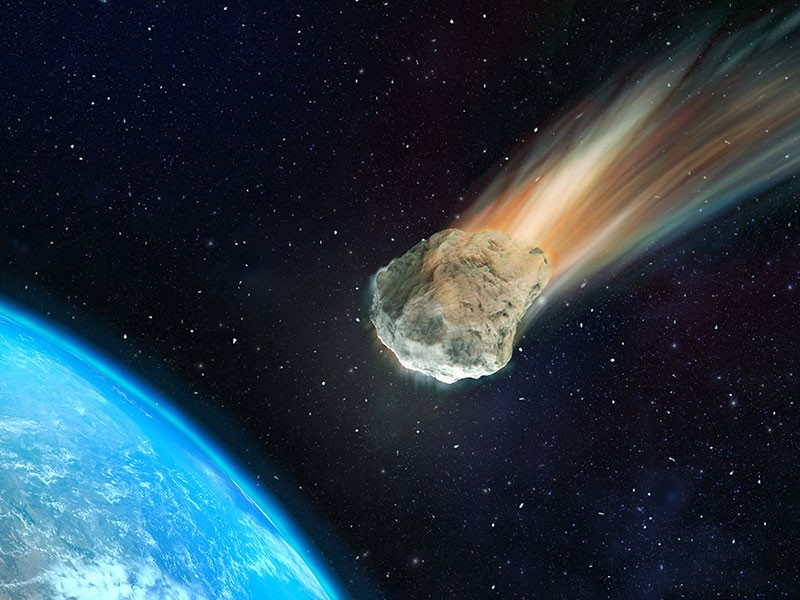I know we’re all consumed with Coronavirus news right now, but I saw an article last week about an asteroid that is expected to pass near the Earth next month, and all I can think about are movies like “Deep Impact” and “Armageddon.”
I’ve seen those movies, so I know that an asteroid hitting Earth is not a good thing. In those movies, an asteroid or a comet or some other types of large object is hurtling toward the planet, and everyone is afraid that if it hits, it will kill off civilization and knock the planet out of its orbit around the sun. Of course, that’s just a movie and Hollywood always takes theatrical license with reality in order to tell a good story. I’m OK with that. Reality isn’t always that interesting.
On the other hand, a lot of really smart scientists think that dinosaurs became extinct because of an asteroid that struck Earth. There’s no way to be completely sure that’s what happened, though. There are no dinosaurs around to ask, so it’s entirely possible they were wiped out by an early strain of Coronavirus because they didn’t practice social distancing. That and the fact that all the prehistoric grocery stores were sold out of Clorox wipes.
I’m smart enough to know that things fall out of the sky all the time. About 500 meteorites hit the Earth every year. Old rockets and unused satellites often fall out of orbit, and what doesn’t burn up on re-entry to the atmosphere falls to the ground. Yet in all the years I’ve been a reporter, I’ve never covered a story about someone getting hit by stuff falling from space.
Remember Skylab? After America stopped going to the moon in the early 1970s, we sent Skylab, the country’s first space station, into orbit and over the next two years, astronauts went there to conduct experiments.
But in 1979, Skylab began to fall out of orbit, creating an international media event. People sold hats and T-shirts with bullseyes on them. Others sold “Skylab Repellent” and promised a money-back guarantee if it didn’t work. You could bet in Vegas on when and where Skylab would crash to Earth.
The San Francisco Examiner offered $10,000 to the person who brought the first piece of Skylab to its office. Not to be outdone, the San Francisco Chronicle offered $200,000 if one of its subscribers suffered personal injury or property damage.
I was a huge space nerd in those days, and I hung on every bit of news about Skylab. Secretly, I hoped it would crash in the backyard, without, of course, hitting the house. Unfortunately, it re-entered the atmosphere over the Indian Ocean and crashed in Australia, about as far away from my backyard as you can get.
But this asteroid we’re talking about is significantly bigger than Skylab. NASA’s Center for Near Earth Studies said it is between 1.1 and 2.5 miles wide. The asteroid, which is called 52768 (NASA used to be better at naming things), is expected to fly by on April 29 around 5 a.m. But it is not expected to collide with our planet. In fact, it says, the asteroid will pass withing 3,908,791 miles of Earth.
Of course, given the enormous size of the universe, 3.9 million miles is, relatively speaking, a short distance, and I’d hate to think some NASA scientist misplaced a decimal point.
Wonder if anyone is selling “Asteroid Repellent”?










